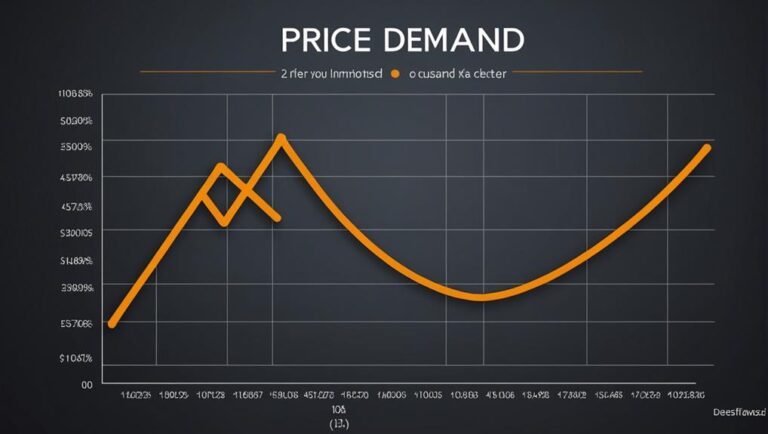Death Benefit: How It’s Taxed and Who Can Claim It
Death benefits from life insurance policies usually aren't taxed as ordinary income. Annuity beneficiaries might face income tax based on circumstances. Pensions have varying tax treatments for death benefits. Beneficiaries must be aware of potential income tax implications. Understanding tax treatment is vital. Claiming death benefits involves necessary documentation like a death certificate. Only eligible beneficiaries designated by the policyholder can claim benefits. Consulting a financial professional for personalized advice is advisable. The intricacies of estate tax implications and the claiming process add complexity to the situation. For thorough knowledge on this subject, further information can shed light on the finer details.
Key Takeaways
- Death benefits from life insurance are typically not subject to ordinary income tax.
- Annuity beneficiaries may face income tax on death benefits based on circumstances.
- Beneficiaries designated by the policyholder can claim death benefits.
- Estate tax may apply if the death benefit goes to the insured's estate.
- Consulting a financial professional can offer tailored guidance on claiming death benefits effectively.
Taxation of Death Benefits
What tax implications arise from receiving death benefits from life insurance policies, annuities, and pensions?
Death benefits from life insurance policies are typically not subject to ordinary income tax, providing a tax-free source of financial support for beneficiaries.
However, annuity beneficiaries may face income tax on death benefits depending on the specific circumstances.
Pensions have varying tax treatment for death benefits, and interest on installment payments may be taxable.
Additionally, estate tax may apply if the death benefit goes to the insured's estate, highlighting the importance of inheritance planning.
Consulting with a financial professional can provide tailored guidance on maximizing benefits while dealing with the complexities of income tax implications related to death benefits.
Tax Considerations for Beneficiaries
Taking into account the tax implications of receiving death benefits is essential for beneficiaries to effectively manage their financial outcomes. When considering tax considerations for beneficiaries, it is vital to understand the following:
- Tax Implications: Beneficiaries need to be aware of potential income tax on death benefits, especially for annuities. Understanding the tax treatment of different types of death benefits is key to avoiding surprises.
- Beneficiary Rights: Beneficiaries have the right to claim death benefits owed to them. It is important to be informed about the process of claiming benefits and ensuring that all necessary documentation is submitted promptly.
- Tax Reporting: Beneficiaries must report any taxable death benefits accurately to the IRS to avoid penalties. Compliance with tax reporting requirements is essential to prevent legal issues.
- Professional Guidance: Consulting a tax professional or financial advisor can provide beneficiaries with personalized advice on managing tax implications and maximizing their benefits. Expert guidance can help beneficiaries navigate complex tax laws and make informed decisions.
Estate Tax Implications
Understanding the potential impact of estate taxes on death benefits is essential for beneficiaries seeking to navigate the tax implications of their inheritance effectively. Estate planning plays a vital role in managing estate tax implications.
In the United States, estate tax is a tax on the transfer of the estate of a deceased person. However, not all death benefits are subject to estate tax. Tax exemptions may apply, allowing beneficiaries to receive the death benefit without owing estate taxes. Proper estate planning can help minimize the estate tax burden on beneficiaries.
Consulting with a financial advisor or estate planning attorney can provide guidance on structuring the inheritance to take advantage of available tax exemptions and reduce potential tax liabilities.
Claiming Death Benefits Process
The process of claiming death benefits involves specific steps that beneficiaries must follow to access the financial support provided by the policy after the insured individual's passing. To streamline the process and guarantee a smooth claim experience, beneficiaries should adhere to the following steps:
- Required Documentation: Prepare and gather all necessary documents, including the death certificate and any other specific forms requested by the insurer.
- Beneficiary Verification: Verify your status as the designated beneficiary by providing the required identification and documentation.
- Insurer Communication: Maintain open communication with the insurance company throughout the claims process to address any queries promptly.
- Claim Processing: Follow up on the status of your claim regularly to ensure efficient processing and receipt of the death benefits.
Who Can Claim Death Benefits
Who is eligible to claim death benefits from a life insurance policy or annuity contract?
Eligible beneficiaries, as designated by the policyholder, have the right to claim death benefits. These beneficiaries must provide necessary documentation, including a death claim form and a death certificate, to the insurance company holding the policy.
Distribution options for the death benefit may include a lump-sum payment, installment payments, annuities, or interest payments, depending on the policy terms.
It is important for beneficiaries to adhere to the beneficiary designation specified in the policy to facilitate the smooth processing of the claim. Consulting with a financial professional can offer tailored guidance on how to name or inherit death benefits effectively.
Conclusion
To sum up, understanding the taxation and claiming process of death benefits is essential for policyholders and beneficiaries. Grasping the tax implications and eligibility criteria can empower individuals to make informed decisions.
It is noteworthy that in the United States, over 50% of adults do not have a will or estate plan in place, underscoring the significance of being prepared for the future.







